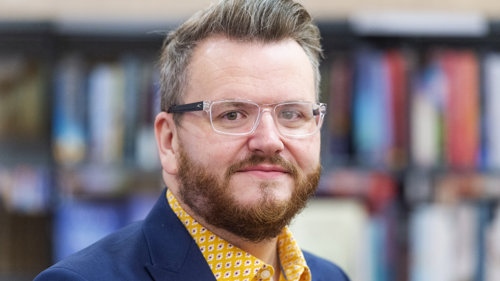A Message From Glasgow Life's Chair

Everywhere you look in Glasgow, you see this principle built into the institutions and neighbourhoods we love.
Glasgow has 40 years of evidence of how championing culture and sport has transformed the city’s fortunes into a must-visit destination which recently saw us named the World’s Friendliest City by Rough Guide.
The challenge of the global pandemic has meant most of us have had to live with no access to the places we used to use daily and weekly to enjoy culture, learning, recreation and fitness.
The impact this is having on all of us is telling. Glasgow’s many communities depend on these places to support their physical, mental and economic wellbeing.
Earlier this week a £100 million safety net was announced for Glasgow Life which, in the short term, will ensure more of the city’s much-loved venues will open in every community.
In the longer term it gives us assurance that Glasgow Life can and will fully recover from the pandemic, that it will adapt and thrive and lead the city on another phase of growth, of world-class events and far-reaching services, that it will be at the heart of the regrowth of the city’s cultural and creative economy.
The economic case for Glasgow Life is clear and compelling. Glasgow’s arts, culture, sport, tourism and events together support 90,000 jobs and generated over £1bn to the local economy in past years.
The health and wellbeing case is just as clear. By 2019, membership of the Glasgow Club health and fitness network had almost trebled from 16,000 in 2007 to almost 45,500.
Attendance at museums, libraries, arts venues, concert halls, community facilities, events and sports hubs grew by 4.5 million between 2007 and 2019.
No other city in Scotland, and I’d argue in the UK, does more than we do to support and sustain local facilities and venues.
Glasgow’s libraries are at the heart of our communities, free places which make everyone welcome, they are hubs for sharing information and learning, opening up new opportunities and connections, and we look forward to the day when all our city libraries are once again open.
Our museums and arts venues form the largest collection of cultural buildings in the country, and they are also the best, not simply because of their number and the range of their offer, but because they are places that lift our collective sights and sprits.
Our gyms and leisure facilities have never been more important. If we recognise the links between ill health and physical activity, then we need to recognise the potential of community sport and activity in helping to improve our citizens’ physical and mental health. This is why we plan to prioritise Social prescription as a post Covid-19 priority.
As we come out of lockdown, people will need to feel the social connection and cohesion all of these places offer.
As horrendous as the pandemic has been, it has presented us with a chance to change, to improve, to do and be better. Glasgow Life should be at the forefront of the mission to take on Glasgow’s deeply entrenched health inequalities and continue to deliver a range of positive health and well-being outcomes that enables people to lead great and flourishing Glasgow lives.
